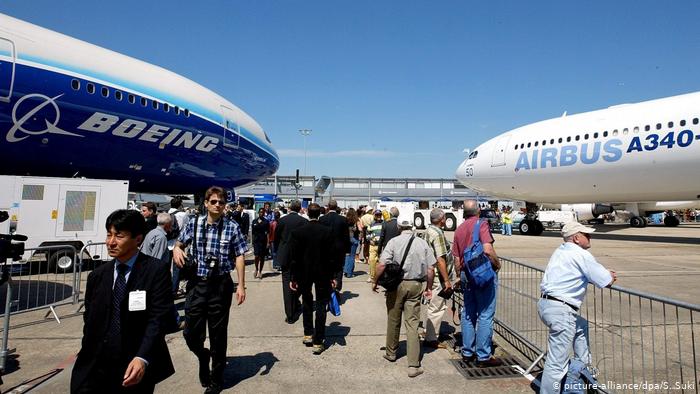The two sides have been battling since 2004 in parallel cases at the World Trade Organization (WTO) over subsidies for U.S. planemaker Boeing and European rival Airbus.
They agreed in March to a four-month suspension of tariffs on $11.5 billion of goods from EU wine to U.S. tobacco and spirits, which they had imposed in response to the row.
On Tuesday, they said they would remove them for five years while still working on an overall deal on what subsidies to allow.
European Commission President Ursula von der Leyen said in a statement that an EU-U.S. summit with U.S. President Joe Biden had begun with a breakthrough.
“This really opens a new chapter in our relationship because we move from litigation to cooperation on aircraft – after 17 years of dispute,” von der Leyen said.
U.S. Trade Representative Katherine Tai spelled out Washington's thoughts on the deal, seen as allowing them to focus on the threat posed by China's nascent commercial aircraft industry.
“Today’s announcement resolves a long-standing irritant in the U.S.-EU relationship,” Tai said.
“Instead of fighting with one of our closest allies, we are finally coming together against a common threat.”
Tai said the two sides had agreed to clear statements on what support could be given to large civil aircraft producers and would cooperate to counter investments in aircraft by "nonmarket actors," referring specifically to China.
"We have committed to meaningful cooperation," she said.
Former EU member Britain, which was also involved in the dispute as a home to Airbus production, said it hoped for a similar deal within days. Tai is due to meet her British counterpart Liz Truss Wednesday.
Steel dispute lingers
The EU-U.S. agreement removes one of two major trade irritants left over from Donald Trump's presidency, the other being tariffs imposed on grounds of national security on EU steel and aluminum imports.
The European Commission, which oversees EU trade policy, last month suspended for up to six months a threatened June 1 doubling of retaliatory tariffs on Harley-Davidson motorbikes, U.S. whiskey and motorboats, and refrained from slapping tariffs on more U.S. products from lipstick to sports shoes.
Brussels and Washington have said they would seek to address excess global steel capacity largely centered in China.
The U.S. may find it tougher to remove the metals tariffs, which also apply to other countries such as China, because they are still backed by many U.S. metal producers and workers.
Brussels is also pushing what it dubs a new "positive agenda" on trade with Washington, including forging an alliance to drive WTO reform.
The two are also likely to agree to cooperate on trade and technology, such as for setting compatible standards and facilitating trade in artificial intelligence.
















































